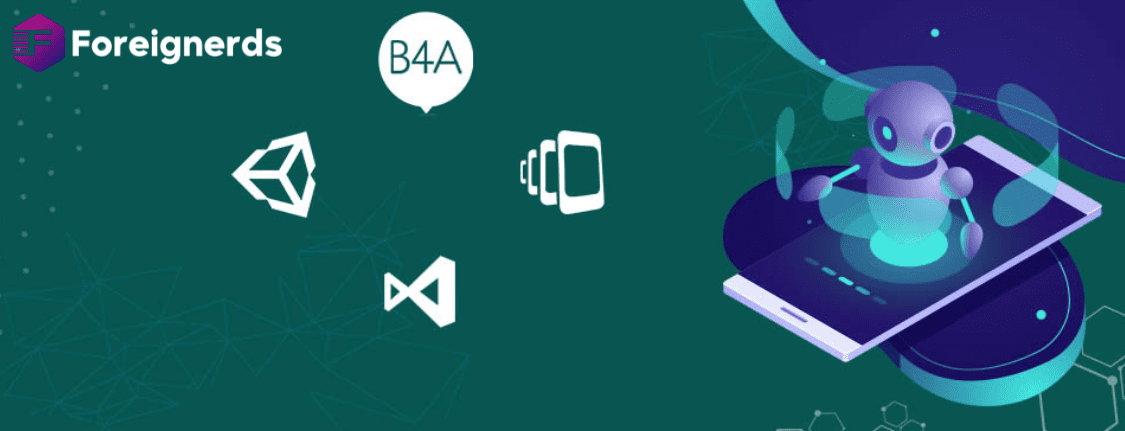- Home
- App Development Services
- Title: Exploring 5 Powerful Tools for...

In today’s rapidly evolving tech landscape, mobile app development is gaining momentum as one of the most sought-after skill sets. This trend has led to the emergence of numerous frameworks and software solutions, each vying for a piece of the action. Among these contenders, Python, a versatile programming language, has proven itself as a formidable player. This article delves into the world of Android app development using Python and highlights five effective tools to make the process smoother and more efficient.
Python, founded by Guido van Rossum in 1991, stands out as a high-level object-oriented programming language. Renowned for its simplicity and ease of learning, Python enjoys cross-platform compatibility, running seamlessly on Windows, Mac, Linux, Raspberry Pi, and more. It operates on an interpreter system, allowing for efficient code execution immediately upon writing. Moreover, Python’s syntax is more user-friendly compared to many other programming languages.
Python’s popularity has surged in recent years, and its advantages for Android app development are noteworthy:
Python programs are executed directly by the interpreter without the need for a compiler. This approach streamlines programming and error identification, leading to quicker development.
Python simplifies prototype creation for applications and supports prototype development, making it possible to build applications directly from these prototypes. Additionally, Python’s compatibility with multiple operating systems allows developers to work across various platforms seamlessly.
Python offers an extensive range of powerful libraries for Android app development, enabling developers to select modules that align with their project requirements, minimizing the need for extensive coding.
Python boasts an active and supportive community that provides a wealth of guides, tutorials, and documentation, making it an attractive choice for developers.
While Python is versatile and can be used for web development, data analysis, and more, specific tools are essential to write code compatible with the Android operating system. These tools generate native source code, closely resembling handwritten code, which can be further optimized with native compilers. Let’s explore some popular platforms for Android app development using Python:
Kivy, an open-source Python library, enables the development of mobile applications and multi-touch software. It supports Android application development and runs on various platforms, including IOS, Linux, OS X, Windows, and Android. Kivy is designed for swift cross-platform UI application development. It features a graphics engine built on OpenGL, allowing it to handle GPU-bound workloads efficiently. Kivy offers a tailored UI toolkit, providing text stickers, text entry forms, buttons, and more. While it may not use native user interface controls, Kivy ensures reliability and flexibility across platforms.
BeeWare is another popular framework that facilitates writing Python applications for cross-platform deployment. It supports Windows, MacOS, Linux GTK, and mobile platforms like Android and iOS. BeeWare employs a Native UI toolkit, enabling developers to create a native look and feel UI on a cross-platform basis. The entire BeeWare tool suite is BSD licensed, fostering open-source development. However, as a relatively new project, it is still in the process of building a strong community.
SL4A, originally known as ASE (Android Scripting Environment), simplifies Android app development by exposing a simplified Android API subset. It allows the editing and running of interactive scripts and interpreters directly on Android devices. Supported languages include Python, Perl, JRuby, Lua, BeanShell, JavaScript, Tcl, and shell. SL4A serves as a valuable tool for developers looking to create Python programming apps for Android.
Pyqtdeploy is an application deployment tool for PyQt, compatible with desktop platforms like Linux, Windows, OS X, and mobile platforms such as iOS and Android. It functions by extracting individual modules from a PyQt application, freezing them, and converting them into C++ code using Qt’s RCC tool. Pyqtdeploy also supports the standard Python library and generates a Qt .pro file for each component of the C++ code, simplifying the platform-specific Makefile generation process.
Chaquopy, a plugin for Android Studio’s Gradle-based build system, enables seamless integration of Java and Python in Android apps. It provides access to the entire Android API and UI Toolkit, allowing developers to write Python code for Android app development. However, it’s important to note that while Python can be used for Android app development, it may not offer the same level of effectiveness and reliability as Java, which remains the official language for Android development.
While Python presents opportunities for Android app development, it also comes with certain challenges:
Python’s rise in popularity has opened up exciting opportunities for app development, both in enterprise and consumer spaces. Python’s versatility and accessibility make it an attractive choice for developers of all levels. To turn your app ideas into reality, consider partnering with an established Python app development company like Explorate Global. Their expertise can help you create fully-featured Android apps, enabling you to thrive in the ever-evolving digital landscape.
© 2013 - 2025 Foreignerds. All Rights Reserved